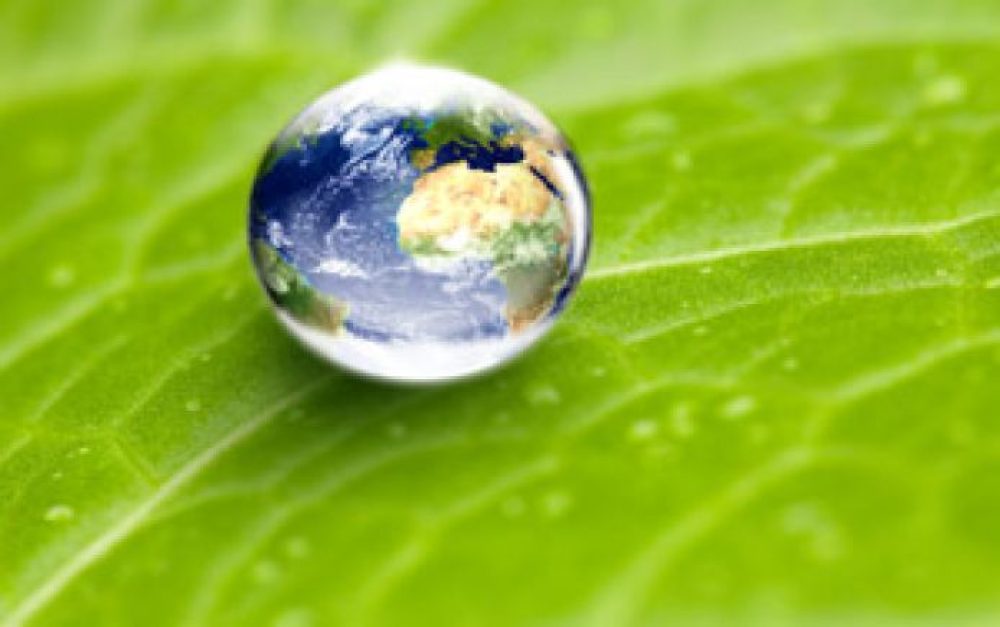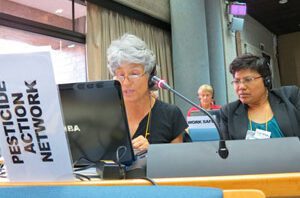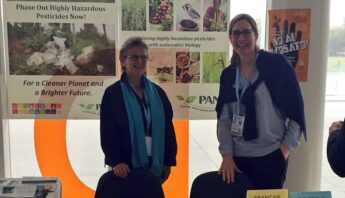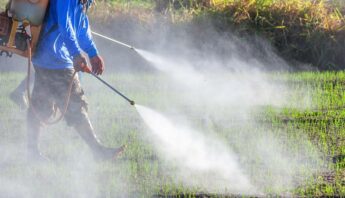This week, PAN International is gathered with governments from across the globe in Nairobi, Kenya, pushing assertive and fair action on chemicals. Our goal: protect the health and well-being of our families and ecosystems the world over.
The auspices for the gathering: it's time to check progress on the Strategic Approach to Integrated Chemicals Management (better known as SAICM), an agreed-upon global plan of action to reduce to a minimum the harm chemicals wreak on health and ecosystems by 2020.
The SAICM agreement offers tools and concrete guidance for governments to achieve this goal, established in 2002 at the World Summit on Sustainable Development in Johannesburg: by 2020, chemicals are used in ways that minimize harm to human health and ecosystems.
PAN participates because this goal is urgent: the health and prosperity of future generations is on the line. To get there, we have an incredible amount of work to do.
Why SAICM?
While international policies, codes, treaties and voluntary agreements such as SAICM are painfully slow to negotiate and implement — and can be vulnerable to capture by industry (yes, the Big 6 pesticide corporations are in Nairobi in aggressive force) — such global policies are profoundly important. The agreements can either set the stage for, or completely undermine, local and national action to safeguard our health.
Without global rules and safeguards, the most hazardous chemicals are inevitably pushed into communities and countries that face economic and political disenfranchisement, making the terms of chemical use fundamentally unfair, and opening a giant loophole for the chemical industry that comes back to bite us all — in the chemicals used elsewhere that migrate on wind, water and food into our bodies, and when our community is the one disenfranchised, without the political or economic power to say "enough" in the face of aggressive chemical industry push.
After 30 years of pressing for change across the globe, PAN knows it is the combination of local action and global policy that are key to creating long-lasting change that embodies both health and justice.
Judy Hatcher, PAN North America's Executive Director, is on the ground in Nairobi this week. She reflects:
Being at these meetings reminds me that PAN didn't start in one country and then build branches elsewhere. We started as an international organization, born in Malaysia, and founded by people from more than 22 countries. We've always been a network of local groups and communities coming together to create global power and change.
PAN has an impressive track record of important global victories, in large part because we are there for each other. I feel privileged to meet with leaders from other regions of the world who work with us to continue that legacy.
PAN is in Nairobi, too, to build and strengthen alliances toward strong environmental health and justice movements. PAN leaders are working closely with our long-time partner, IPEN, which works on broader, but related, issues. As Judy echoed in her report from Nairobi last night, "We're also supporting our global partners in building strong movements on chemicals and democracy."
UN says chemicals costly & urgent action needed
In the run-up to this week's SAICM meetings, the United Nations released its first comprehensive report on chemicals, the Global Chemicals Outlook. The UN's findings of economic and health harm from chemicals were significant, and their call for change urgent. Most startling were some of the numbers they put to health and environmental costs of hazardous chemical production, use and disposal. One sample of the many facts presented that bolster their case:
- "Between 2005-2020, the accumulated cost of illness and injury linked to pesticides in small-scale farming in sub-Saharan Africa could reach USD $90 billion. The estimated costs of poisonings from pesticides in sub-Saharan Africa now exceeds the total annual overseas development aid given to the region for basic health services, excluding HIV/AIDS."
And on the economic potential for investment in alternatives, the UN found that sustainable agriculture investments paid off not only in health and environmental terms, but in economic benefits as well. The UN found:
- "In developing and emerging countries, major gains can be made through sustainable agriculture practices, such as integrated pest management (IPM). In potato farms in Ecuador, IPM was introduced to tackle high pesticide poisoning rates. The IPM plantations yielded as many or more potatoes, but with over 20% less production costs, than plots using chemical pesticides."
- "Indonesia introduced as early as the 1990s an IPM program that helped farmers to reduce the use of pesticides by over 50% and increase yields by approximately 10%… Predicted benefits over a 19-year period include the avoidance of over 20,000 cases of acute poisonings among rice farmers, a total accumulated GDP gain equivalent to 22% of Indonesia's GDP in 2000, and an increase in household income by up to 5%."
PAN's work in Nairobi
Pesticide Action Network will present a plenary intervention on Friday, September 21, supported by officials from around the world, calling for an end to the expensive chemical treadmill, and investments instead in long-term solutions for food and farming like agroecology. Specifically, PAN calls upon governments and international institutions to:
- apply the precautionary principle in the regulation of pesticides at both international and national levels;
- embrace harm prevention as a core policy over risk management, taking into utmost consideration the effects on vulnerable groups such as pregnant women and children;
- substitute the use of highly hazardous pesticides with less harmful means such as agroecological approaches;
- give priority support to promote the transition towards agroecological farming and respect for food sovereignty through knowledge-sharing and capacity building, and the implementation of supporting policies on land, food, technology and credit; and
- eliminate the production and use of highly hazardous pesticides via a progressive ban as ecological alternatives are gradually introduced.
Support from governments around the world for such measures is actually quite strong, although a handful of powerful interests — including U.S. representatives and the pesticide industry — stand in the way.
And so our work continues, alongside a global groundswell for change. As Judy reflected in late night Nairobi:
I'm very conscious of being a U.S. citizen in these circles. It is incredibly hard for people in most other countries to do the work that we do, with less access to resources, and fewer protections for basic human rights. At the same time, I'm sometimes embarrassed by the heavy-handed positions the U.S. government and U.S.-based corporations often take in international fora. This meeting was a call to action for what I, as a U.S. citizen, must do to support justice at home and in other parts of the world.







